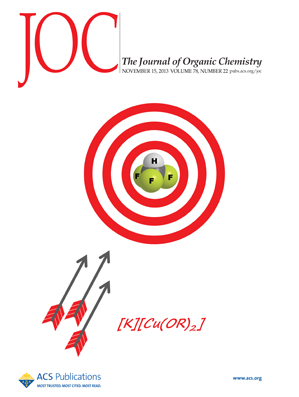A paper by Vladimir Grushin's group on the list of Most Read articles in Organometallics
14th February 2014 – The paper by Vladimir Grushin et al. deals with a highly efficient process for Azidocarbonylation of iodoarenes with CO and NaN3, a novel Heck-type carbonylation reaction. The reaction, catalyzed by Xantphos-Pd, occurs in an organic solvent–H2O biphasic system to furnish aroyl azides under vey mild conditions (room temperature, 1 atm) and exhibits high functional group tolerance. The catalyst loading has been lowered to 0.2% without any losses in selectivity at nearly 100% conversion to synthesize a series of aroyl azides in 80–90% isolated yield on a gram scale. Furthermore, the ArCON3 product can be used without isolation for further transformations in situ. The reaction mechanism has also been studied in detail.

The Challenge of Palladium-Catalyzed Aromatic Azidocarbonylation: From Mechanistic and Catalyst Deactivation Studies to a Highly Efficient Process
Fedor M. Miloserdov, Claire L. McMullin, Marta Marti´nez Belmonte, Jordi Benet-Buchholz, Vladimir I. Bakhmutov, Stuart A. Macgregor, and Vladimir V. Grushin
2014, 33 (3), pp 736–752
This paper is one of the articles on the most read articles list in Organometallics.
Related news

Let's create a brighter future
Join our team to work with renowned researchers, tackle groundbreaking
projects and contribute to meaningful scientific advancements






 27-05-2022
27-05-2022 


















